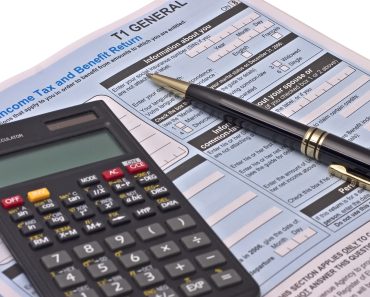
Quebec tax brackets play a crucial role in determining the amount of income tax individuals owe in the province. Understanding the income tax system in Quebec and the different tax rates for various income levels is essential. By knowing your tax brackets, you can effectively calculate your taxable income and explore strategies to maximize tax credits and deductions. This article provides an overview of Quebec tax brackets, breaks down the current tax rates, and offers insights on filing tax returns and considerations for self-employed individuals and businesses. Discover valuable resources and frequently asked questions about Quebec tax brackets.
Overview of Quebec Tax Brackets
Understanding the Income Tax System in Quebec
Different Tax Rates for Various Income Levels
Importance of Knowing Your Tax Brackets
The Quebec tax system utilizes a progressive tax rate structure, where individuals are subject to different tax rates based on their income levels. This overview delves into the key aspects of Quebec tax brackets, providing an understanding of the income tax system, the varying tax rates based on income, and the importance of knowing which tax bracket you fall into.
Understanding the Income Tax System in Quebec
Quebec, as one of the provinces in Canada, has its own income tax system separate from the federal tax system. This means that Quebec residents are required to file both federal and provincial tax returns. It’s important to have a clear understanding of how the Quebec income tax system operates to ensure compliant filing and avoid penalties.
Different Tax Rates for Various Income Levels
Quebec employs a progressive tax rate structure, which means that higher income levels are subject to higher tax rates. It’s crucial to comprehend how these tax rates are structured and at what income thresholds they apply. This knowledge enables individuals to estimate their tax liabilities accurately and plan their finances accordingly.
Importance of Knowing Your Tax Brackets
Knowing which tax bracket you fall into is essential for several reasons. Firstly, it helps in calculating your tax liability accurately and avoiding underpayment or overpayment of taxes. Secondly, understanding your tax bracket allows you to plan your finances efficiently and make informed decisions regarding investments, savings, and expenses. Lastly, it helps you identify potential tax credits, deductions, or exemptions that may be available to you based on your income level.
Determining Your Taxable Income
Calculating Your Gross Income
Calculating your gross income is the first step in determining your taxable income for Quebec tax purposes. Include all sources of income such as employment earnings, self-employment income, rental income, and investment income. Ensure you have accurate records of your income sources and gather all relevant documentation, such as T4 slips for employment income and T5 slips for investment income.
Deductions and Credits for Reducing Taxable Income
Once you have calculated your gross income, you can start exploring deductions and credits that can reduce your taxable income. Deductions, such as RRSP contributions and child care expenses, can be used to lower your taxable income. Additionally, there are various tax credits available, such as the Canada Child Benefit and the Canada Workers Benefit, which can further reduce your tax liability.
Exploring Taxable Income Exclusions
While calculating your taxable income, it is essential to be aware of exclusions that may reduce the amount of income subject to taxation. Examples of taxable income exclusions in Quebec include certain scholarships and bursaries, registered pension plan lump-sum payments, and capital gains on the sale of a principal residence. Take the time to understand these exclusions to optimize your taxable income.
Quebec Tax Brackets and Rates
Understanding the tax brackets and rates in Quebec is crucial for individuals and businesses in the province. This section provides a breakdown of the current tax brackets, explains the impact of marginal tax rates, and highlights any changes in tax rates over the years.
Breakdown of Current Tax Brackets
The current tax brackets in Quebec determine the amount of income tax owed based on different income levels. Here is a breakdown of the tax brackets for the year 2023:
- Income up to $45,605: Tax rate of 15%
- Income between $45,606 and $91,210: Tax rate of 20%
- Income between $91,211 and $142,353: Tax rate of 24%
- Income above $142,353: Tax rate of 25.75%
It’s important to note that these tax brackets are subject to change, so it’s always advisable to stay updated with the latest information from the Quebec government.
Marginal Tax Rates and Their Impact
Marginal tax rates play a significant role in understanding the overall tax liability for individuals. In Quebec, as in the rest of Canada, the marginal tax rate is the rate applied to the next dollar of income earned. As income increases, individuals move into higher tax brackets, resulting in a higher marginal tax rate. This means that individuals will pay different tax rates on different portions of their income.
Understanding marginal tax rates can help individuals plan their finances more effectively and make informed decisions regarding income, investments, and deductions.
Changes in Tax Rates Over the Years
Over the years, tax rates in Quebec may change due to various factors such as government policies, economic conditions, and fiscal priorities. It’s essential to stay informed about any changes in tax rates to ensure accurate tax planning and compliance.
By keeping track of historical tax rate changes, individuals and businesses can better understand how tax obligations have evolved over time and make informed financial decisions based on these changes.
Maximizing Tax Credits and Deductions
When it comes to maximizing your tax credits and deductions in Quebec, there are several key strategies to consider:
Identifying Eligible Tax Credits
Quebec offers various tax credits that can help reduce your overall tax liability. It’s important to familiarize yourself with the available credits and determine which ones you qualify for. Some common tax credits in Quebec include the Solidarity Tax Credit, Tax Credit for Childcare Expenses, and the Tax Credit for Home-Support Services for Seniors.
Childcare Expenses and Tax Benefits
If you have children and incur childcare expenses, you may be eligible for tax benefits in Quebec. The Tax Credit for Childcare Expenses provides financial relief to parents who pay for eligible childcare services. Make sure to gather all necessary receipts and documentation to claim this credit accurately.
Making the Most of Capital Gains Tax Rules
Understanding the capital gains tax rules can help you maximize your deductions. In Quebec, certain capital gains may be eligible for a deduction or a partial inclusion rate. By carefully planning your investments and capital gains, you can take advantage of these deductions and potentially reduce your tax burden.
By identifying eligible tax credits, leveraging childcare expenses benefits, and understanding capital gains tax rules, you can optimize your tax credits and deductions in Quebec. Always consult with a tax professional or use tax software to ensure accurate reporting of your credits and deductions.
Filing Your Quebec Tax Return
Understanding the Tax Filing Obligations
Filing your Quebec tax return is an important obligation for all residents of Quebec. It allows you to report your income, claim any eligible deductions and credits, and calculate the amount of tax you owe or the refund you may be entitled to. Understanding your tax filing obligations ensures compliance with the tax laws and helps you avoid any penalties or interest charges.
Online Services for Easier Tax Filing
Quebec offers convenient online services that streamline the process of filing your tax return. By using these services, you can submit your tax return electronically, eliminating the need for paper forms and reducing the processing time. The online platform provides step-by-step guidance, ensures accurate calculations, and securely stores your tax information for future reference.
Common Mistakes to Avoid when Filing Taxes
- Missing the filing deadline: It is crucial to submit your tax return before the deadline to avoid penalties. In Quebec, the deadline is typically April 30th, but it may vary in certain situations.
- Incorrect or incomplete information: Ensure that you provide accurate and complete information on your tax return, including personal details, income sources, and deductions. Double-check all entries to minimize errors.
- Overlooking eligible deductions and credits: Take advantage of available deductions and credits to reduce your taxable income. Be aware of commonly overlooked tax breaks, such as education expenses, medical expenses, and pension contributions.
- Not keeping records: Keep all relevant documents and receipts to support your claims and calculations. This includes income statements, expense receipts, and records of charitable donations.
- Ignoring provincial tax considerations: Quebec has specific tax rules and credits that differ from federal guidelines. Familiarize yourself with the provincial tax regulations and ensure you maximize your benefits within the Quebec tax system.
By understanding your tax filing obligations, utilizing online services, and avoiding common mistakes, you can simplify the process and ensure accurate reporting of your Quebec tax return. Adhering to these guidelines will help you meet your tax obligations and make the most of available deductions and credits.
Self-Employed and Business Tax Considerations
When it comes to self-employment and running a business in Quebec, there are specific tax considerations you should be aware of. Understanding how to report your self-employment income, identify deductible business expenses, and implement effective tax strategies is crucial for maximizing your financial efficiency.
Reporting Self-Employment Income
As a self-employed individual in Quebec, it is essential to accurately report your income to comply with tax regulations. Keep meticulous records of your business revenue and expenses, and ensure you declare your self-employment income on your tax return. Quebec Revenue Agency provides guidelines and resources to help self-employed individuals report their income correctly.
Deductible Business Expenses
One of the benefits of being self-employed in Quebec is the ability to claim deductible business expenses. These are legitimate business-related expenses that can be subtracted from your gross income, ultimately reducing your taxable income. Examples of deductible business expenses include office rent, equipment purchases, advertising costs, and professional development expenses. Keeping thorough records and consulting with an accountant can help ensure you claim all eligible deductions.
Tax Strategies for Business Owners
As a business owner, it is crucial to implement effective tax strategies to minimize your tax liability. Consider exploring tax-saving strategies such as income splitting, where you redistribute income among family members to take advantage of lower tax brackets. Additionally, leveraging tax credits and incentives specific to your industry can help reduce your overall tax burden. Collaborating with a knowledgeable tax professional can provide valuable guidance and ensure you maximize your tax savings while remaining compliant with Quebec tax laws.
Additional Resources and Support
When it comes to navigating Quebec tax brackets and ensuring accurate filings, accessing additional resources and support can be a valuable asset. Here are some key areas to explore:
Accessing the Quebec Income Tax Calculator
Calculating your income tax can sometimes be complex, but with the Quebec Income Tax Calculator, you can easily estimate your tax liability. This online tool allows you to input your income details and deductions to determine how much you owe in taxes. It provides a convenient way to plan your finances and ensure you’re adequately prepared for tax season.
Home Support and Assistance Programs
In addition to tax resources, Quebec offers various home support and assistance programs. These programs provide financial aid and support for individuals and families in need. Whether you require assistance with housing, childcare, or other essential services, exploring these resources can help alleviate financial burdens and improve your overall well-being.
Rights and Obligations as a Taxpayer
It’s important to understand your rights and obligations as a taxpayer in Quebec. Familiarize yourself with the rights you have when dealing with the tax authorities and the obligations you must uphold to comply with tax regulations. The Quebec government provides comprehensive information and resources that outline your rights and responsibilities, ensuring you’re well-informed and empowered when it comes to your tax affairs.
By taking advantage of these additional resources and support systems, you can enhance your understanding of Quebec tax brackets and optimize your overall financial management. Remember, staying informed and seeking assistance when needed can contribute to a smoother and more successful tax filing experience.
Frequently Asked Questions about Quebec Tax Brackets
Here are some common questions related to Quebec tax brackets:
What is the Basic Personal Amount?
The Basic Personal Amount is the minimum income threshold that individuals can earn without paying federal or provincial income tax. In Quebec, the Basic Personal Amount is determined annually and adjusted for inflation. It serves as a tax credit to reduce your taxable income.
How Do Marginal Tax Rates Work?
Marginal tax rates refer to the tax rate applied to each additional dollar of income earned within a specific tax bracket. In Quebec, the tax system is progressive, meaning that as your income increases, you move into higher tax brackets with higher marginal tax rates.
Can I File My Tax Return Online?
Yes, you can file your tax return online in Quebec. The Canada Revenue Agency (CRA) provides secure online platforms like NetFile Quebec, which allows individuals to file their taxes electronically. It’s a convenient and efficient way to submit your tax return and receive any refunds owed.
What Deductions and Credits Can I Claim?
Quebec residents can claim various deductions and credits to reduce their taxable income and potentially lower their tax liability. Some common deductions and credits include medical expenses, charitable donations, tuition fees, childcare expenses, and public transit passes. It’s important to familiarize yourself with the specific eligibility criteria and documentation requirements for each deduction or credit.
How to Find Out the Amount of Your Refund
To determine the amount of your tax refund, you can use the Canada Revenue Agency’s online tax calculators. These calculators take into account your taxable income, deductions, and credits to provide an estimate of your refund. Alternatively, you can also wait for your Notice of Assessment from the CRA, which outlines the final calculations and any amount owed or refunded to you.







